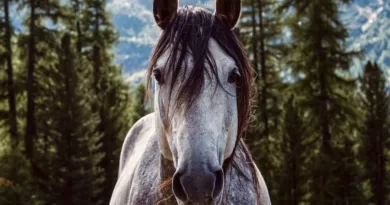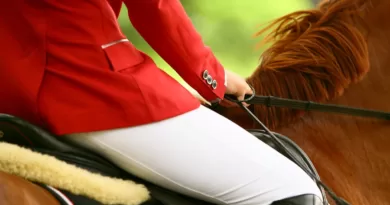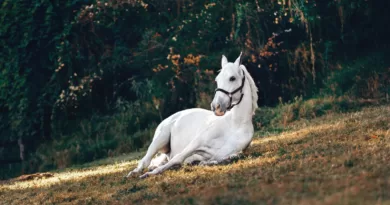Can Horses Eat Chocolate
The Potential Danger of Chocolate for Horses
Chocolate, a sweet treat loved by many, poses a potential danger for horses. While it may be tempting to share a piece of chocolate with our equine friends, it is essential to understand that chocolate and horses do not mix well. Horses have a unique digestive system that is not equipped to handle the components found in chocolate, making it toxic for them.
One of the main toxic components in chocolate is theobromine, a stimulant similar to caffeine. Theobromine affects horses differently than it does humans, as horses have a slower metabolism, making it difficult for them to break down and eliminate theobromine from their system. This can lead to theobromine accumulation, resulting in adverse effects on their health. Another harmful component is the high sugar content found in most chocolate products. Horses have a sensitive digestive system that is not designed to handle large amounts of sugar, leading to potential digestive upsets and imbalances.
Understanding the Digestive System of Horses
The digestive system of horses is a complex and fascinating process that plays a crucial role in their overall health and well-being. Unlike humans and some other animals, horses have a unique digestive system designed to process their diet of forages, such as grass and hay.
Starting with the mouth, horses use their lips and teeth to carefully graze on vegetation. As the food enters their mouth, it is mixed with saliva to aid in the initial breakdown and formation of a bolus. Once the bolus is formed, it is passed through the esophagus and into the stomach. Horses have relatively small stomachs in relation to their size, which means they are designed to eat small, frequent meals throughout the day. From the stomach, the partially digested food moves into the small intestine, where the majority of nutrient absorption takes place. Here, enzymes further break down the food and extract valuable nutrients, which are then transported to the bloodstream for use by the horse’s body.
The Toxic Components of Chocolate
Cocoa, the main ingredient in chocolate, contains several toxic components that can be harmful to horses if ingested. Theobromine, a compound found in cocoa, is particularly dangerous for equines as they metabolize it much slower than humans. This can lead to an increased accumulation of theobromine in a horse’s system, potentially causing various health issues. Another toxic component of chocolate is caffeine, which can have a stimulating effect on horses and may result in restlessness, increased heart rate, and even cardiac arrhythmias if consumed in large quantities.
When a horse consumes chocolate, these toxic components can start to exert their effects on the body. Theobromine acts as a diuretic, causing increased urination in horses. This can lead to dehydration, electrolyte imbalances, and potentially kidney damage. Additionally, the stimulant properties of caffeine can have adverse effects on a horse’s central nervous system, causing anxiety, restlessness, and even seizures in severe cases. With these toxic components posing a significant risk to equine health, it is crucial for horse owners to be aware of the potential dangers and take necessary precautions to prevent their horse from accessing chocolate.
Symptoms of Chocolate Poisoning in Horses
Chocolate poisoning can cause various symptoms in horses, which can range from mild to severe depending on the amount of chocolate ingested. One of the most common signs of chocolate poisoning is excessive sweating or increased body temperature. This can be accompanied by restlessness and agitation, as the horse’s body tries to cope with the toxins present in chocolate. Additionally, horses affected by chocolate poisoning may also display increased heart rate and respiratory rate, as their body tries to eliminate the harmful substances. Other symptoms can include muscle tremors, twitching, and in severe cases, even seizures. It is important to note that these symptoms may not appear immediately after chocolate consumption, as the effects can take time to manifest. If you suspect that your horse has consumed chocolate and you observe any of these symptoms, it is crucial to seek immediate veterinary assistance.
Effects of Chocolate on a Horse’s Health
Chocolate, beloved by many humans, can have detrimental effects on a horse’s health. When ingested, the toxic components of chocolate can wreak havoc on a horse’s digestive system. Theobromine and caffeine, two compounds found in chocolate, can lead to increased heart rate, restlessness, and even cardiac arrhythmias in horses. These effects can be particularly dangerous for horses with preexisting heart conditions or those that are highly sensitive to stimulants.
In addition to its impact on the cardiovascular system, chocolate can also disrupt a horse’s gastrointestinal health. The high fat content of chocolate can overload a horse’s digestive system, leading to digestive disturbances such as colic, diarrhea, and gastrointestinal upset. Moreover, theobromine and caffeine can act as diuretics in horses, increasing urine production and potentially causing dehydration if adequate water intake is not maintained.
Considering the potentially severe consequences of chocolate ingestion, it is crucial for horse owners to remain vigilant and keep chocolate out of their equine’s reach. Opting for safe alternatives, such as specially formulated horse treats or fruits and vegetables, ensures that horses can still enjoy a tasty reward without compromising their health.
Safe Alternatives to Chocolate for Horses
Chocolate is undoubtedly a delicious treat enjoyed by people around the world. However, when it comes to horses, it is vital to avoid giving them any chocolate. Although it might be tempting to share this indulgence with our equine companions, the potential dangers far outweigh any momentary satisfaction. Thankfully, there are several safe alternatives that can be offered to horses as a tasty and healthy treat.
One of the best safe alternatives to chocolate for horses is carrots. These crunchy vegetables are not only low in calories, but they also provide essential vitamins and minerals. Carrots can be easily sliced into smaller pieces and served as a reward during training sessions or simply as a sweet snack. Along with being a mouthwatering option, carrots are also beneficial for a horse’s dental health, as the chewing action helps to naturally wear down their teeth. Additionally, apples, bananas, and watermelon are other safe alternatives that horses can enjoy as refreshing treats without risking any harm to their health.
How to Prevent Accidental Chocolate Consumption
When it comes to preventing accidental chocolate consumption in horses, it is essential for horse owners to be vigilant and take necessary precautions. Firstly, it is crucial to store chocolate in a secure, locked container or pantry where horses cannot reach it. Horses are curious animals and may try to access food items that are within their reach. Therefore, keeping chocolate out of their sight and reach is crucial to avoid any mishaps.
Additionally, it is important to educate everyone in the vicinity of the horses, such as stable workers, barn visitors, and even children, about the potential dangers of feeding chocolate to horses. Many people are unaware that chocolate can be toxic to horses, and they may unknowingly offer it as a treat. By spreading awareness and emphasizing the risks associated with chocolate consumption, we can collectively prevent accidents from happening and ensure the well-being of our equine friends.
• Store chocolate in a secure, locked container or pantry
• Keep chocolate out of sight and reach of horses
• Educate stable workers, barn visitors, and children about the dangers of feeding chocolate to horses
• Spread awareness about the risks associated with chocolate consumption in horses
Seeking Veterinary Assistance for Chocolate Ingestion
When it comes to chocolate ingestion in horses, seeking prompt veterinary assistance is crucial. The consumption of chocolate can lead to serious health complications, and only trained professionals can accurately assess the extent of the damage and provide appropriate treatment. As soon as a horse has ingested chocolate, it is vital to contact a veterinarian immediately for guidance and advice.
Veterinary assistance for chocolate ingestion typically involves a thorough evaluation of the horse’s condition, including assessing vital signs, conducting physical examinations, and potentially ordering diagnostic tests. Depending on the amount and type of chocolate consumed, the veterinarian may recommend inducing vomiting or administering activated charcoal to limit absorption. In severe cases, additional interventions such as intravenous fluids or other supportive therapies may be necessary to minimize the potential risks and complications associated with chocolate poisoning. Remember, time is of the essence, and seeking veterinary assistance promptly can significantly improve the outcome for the horse.
Educating Horse Owners on the Hazards of Chocolate
Chocolate might be a tempting treat for us humans, but it poses a significant danger to our equine friends. Educating horse owners on the hazards of chocolate is of utmost importance to ensure the well-being and safety of horses. While it may seem harmless to share a piece of chocolate with your beloved horse, it’s crucial to understand that chocolate contains toxic components that can have severe consequences on their health.
Theobromine and caffeine are two toxic substances found in chocolate that can cause detrimental effects on a horse’s digestive system. These substances are rapidly absorbed into the bloodstream and can lead to an increased heart rate, muscle tremors, and even seizures. Furthermore, chocolate has a high fat content, which can disrupt a horse’s delicate balance of nutrients and lead to digestive disturbances. As responsible horse owners, it is our duty to be aware of these hazards and take necessary precautions to prevent accidental chocolate consumption. We must educate ourselves and others about the risks involved and seek veterinary assistance promptly if ingestion occurs.
The Importance of a Balanced and Nutritious Diet for Horses
A balanced and nutritious diet is essential for the overall health and well-being of horses. Just like humans, horses require a variety of nutrients to support their various bodily functions. A diet that lacks in any essential nutrient can lead to deficiencies, which can have negative consequences on the horse’s health.
A balanced diet for horses should consist of a combination of high-quality forage, such as hay or grass, along with concentrated feeds containing essential nutrients like proteins, carbohydrates, fats, vitamins, and minerals. The forage provides the necessary fiber to maintain a healthy digestive system, while concentrated feeds help fulfill the horse’s energy and nutrient requirements. By ensuring that horses receive a balanced and nutritious diet, horse owners can help promote optimal health, performance, and longevity in their equine companions.
Why is a balanced and nutritious diet important for horses?
A balanced and nutritious diet is crucial for horses as it provides them with the necessary nutrients, vitamins, and minerals to support their overall health, immune system, and performance.
Can horses eat chocolate?
No, horses should not be fed chocolate as it is toxic to them and can cause serious health issues.
What happens if a horse consumes chocolate?
If a horse consumes chocolate, it can lead to chocolate poisoning, which can result in symptoms such as increased heart rate, agitation, muscle tremors, diarrhea, and potentially even death.
What are some safe alternatives to chocolate for horses?
There are several safe alternatives to chocolate for horses, including carrots, apples, watermelon, oats, and commercially available horse treats.
How can accidental chocolate consumption be prevented?
Accidental chocolate consumption can be prevented by ensuring that chocolate is stored securely and out of reach of horses, and by educating all individuals who have access to the horses about the dangers of feeding them chocolate.
When should veterinary assistance be sought for chocolate ingestion?
Veterinary assistance should be sought immediately if a horse has ingested chocolate, as prompt treatment can help mitigate the potential harm caused by chocolate poisoning.
How can horse owners be educated about the hazards of chocolate?
Horse owners can be educated about the hazards of chocolate through informational articles, workshops, seminars, and by consulting with their veterinarians who can provide specific guidance and recommendations.
Why is it important to understand the digestive system of horses?
Understanding the digestive system of horses is important as it allows horse owners to make informed decisions about their horses’ diets, ensuring that they receive the appropriate nutrients and avoid potentially harmful substances like chocolate.
What are the toxic components of chocolate for horses?
Chocolate contains theobromine and caffeine, which are toxic to horses. These substances can affect the horse’s cardiovascular, nervous, and digestive systems.
How can a balanced and nutritious diet benefit a horse’s health?
A balanced and nutritious diet can benefit a horse’s health by supporting proper growth and development, maintaining a healthy weight, promoting strong bones and muscles, enhancing immune function, and improving overall performance and well-being.




